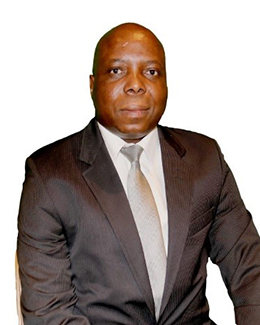

In 2005 the name of our department changed to the Department of Decision Sciences (Afrikaans: Departement Besluitkunde, seTswana: Lefapha la Disaense tsa Tshweetso) but this did NOT affect the name of the degrees or modules. The focus of research and teaching in the Department has always been on decision making based on facts and scientific methods in various context, ranging from industry and finance to the public sector, and not on management per se. The new name reflects the focus of the Department's activities in the College of Economic and Management Sciences and Unisa joined prestigious institutions like Drexel University, The National University of Singapore, Georgia State University, the Erasmus University in Rotterdam and Rensselaer Polytechnic Institute in having a department with the name Decision Sciences.

Hopolang Phillip Mashele
Chair of Department:
Decision Sciences
On behalf of Department of Decision Sciences, I want to extend a warm welcome to all the colleagues and students. At its core, decision science is about using data and analytical methods to make evidence-based choices by combining techniques from fields like statistics, operations research, mathematics and economics to tackle tough questions and bring clarity to complex challenges.
The Department of Decision Sciences is a multidisciplinary department in the School of Economic and Financial Sciences of the College of Economic and Management Sciences at the University of South Africa. The department brings together scholars from a range of fields with an interest in decision making applying quantitative methods.
The department offers both undergraduate and postgraduate studies in Quantitative Management and Operations Research. The focus areas of our research include Computability and Complexity in Decision Sciences, Quantitative Finance, Modelling and Optimisation. The main catalytic niche area of the department is the Fourth Industrial Revolution and Digitalisation. Some of the academics in the department are NRF-rated researchers: 2 B rated and 2 C rated.
Our student service is one of the best at the university. We usually have fewer complaints from students and any complaints are attended to swiftly. Students are the number one stakeholders of the department. Most of our students also approach their studies seriously. In the past two years, the department has had fewer cases of misconduct and fewer issues related to academic integrity.
We hope colleagues and students will enjoy the journey that we are going to take during this academic year,
Yours Truly
Hopolang Phillip Mashele
Chair of Department